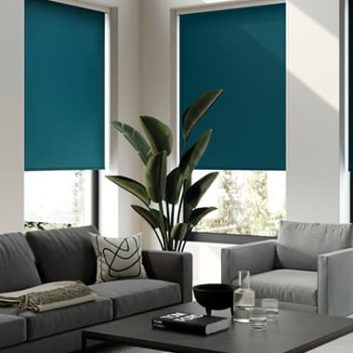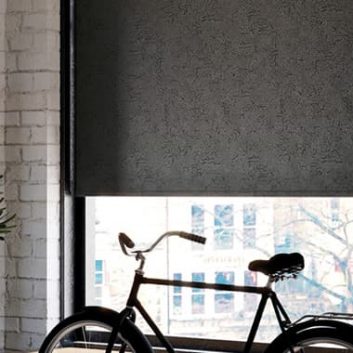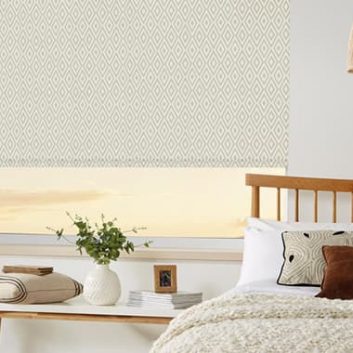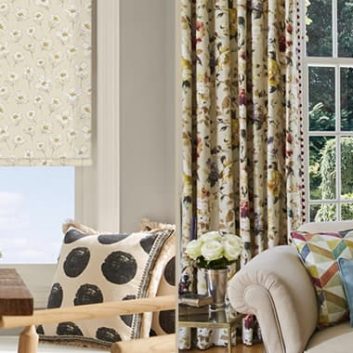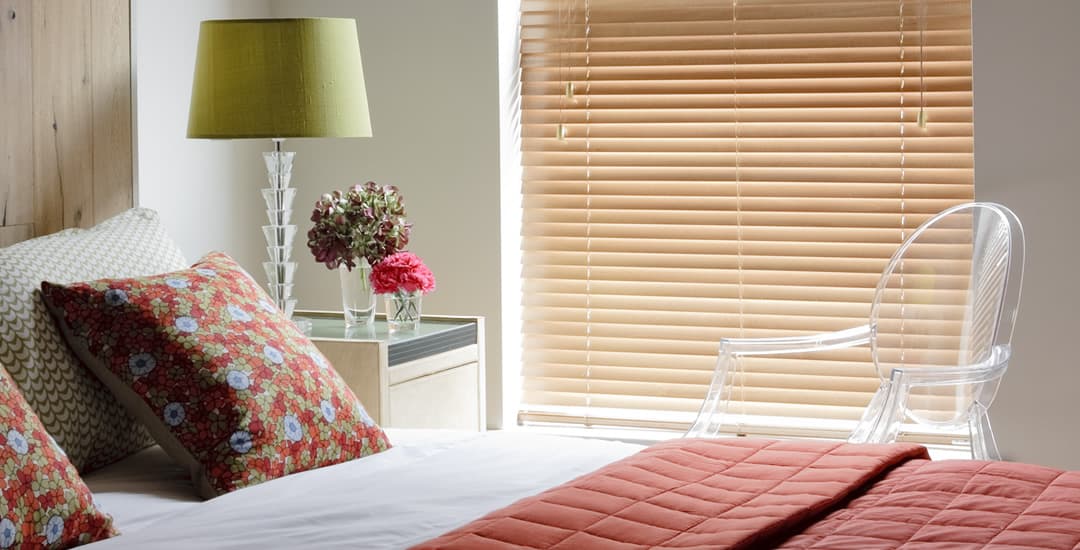
Do Venetian blinds offer a good night’s sleep? This depends on the factors that for you personally, enhance or ruin your naptime! This might include factors like whether you need total darkness to sleep or on the flipside, cannot relax in total darkness because the monster under the bed might get you; even things like what sort of ambient temperature you find conducive to catching your ZZZZZ’s plays a part.
If you just want a very succinct answer to “do Venetian blinds offer a good night’s sleep,” well, they absolutely do if you can’t sleep in or don’t want to wake up in total darkness; but aren’t a good pick if you’re in the market for weapons-grade blackout blinds that won’t let the slightest chink of light seep through them.
If you want a bit more information on Venetian blinds and whether or not they’re a good pick for bedrooms, read on and I’ll outline the variables that will help you to decide.
Are Venetian blinds suitable for bedrooms?
In terms of their style, Venetian blinds tend to suit a fairly wide range of different bedroom decors, given that Venetians come in aluminium options (in every colour of the rainbow) and real wood and faux-wood options respectively.
Looking instead at their functionality, Venetian blinds are an option to keep on the table if you want blinds that can filter light and be adjusted with a fine degree of accuracy to provide privacy.
There’s no immediate or universal reason why Venetian blinds aren’t right for bedrooms, but whether or not they’re suitable for your own bedroom depends on what sort of style of blinds you like, how bothered you are about controlling light and privacy, and how much light you’re comfortable with having come in at night.
Do Venetian blinds offer a good night’s sleep if you need to have total darkness?
If a tiny chink of light filtering through your blind is going to be enough to keep you awake or wake you up when it starts to get light, my suggestion is that Venetian blinds are not the right bedroom blinds for you.
This is because while they do block the vast majority of external light when fully closed, they don’t achieve a full blackout like some other types of blinds do, because their actual design doesn’t allow for this.
Venetian blinds are raised and lowered by means of lift cords; these run through tiny pinprick holes in every slat of the blind at both ends of the blind and for wider options, at various stages along its length too.
While these pinprick holes are obviously tiny, so is light; and so a closed Venetian blind will not block all possible light from outside, whether that be the sun, a streetlight, or a member of your leet security team’s Maglite as they perform their nightly garden patrol.
Something else to note here is that while non-blackout blinds are known as dimout blinds, when we use this term we tend to refer to the fabric of the blind, and the extent to which it filters or mutes the light; this effect tending to be diffuse and subtle when it comes to light passing through the fabric.
However, the material of a Venetian blind itself (aluminium, wood, or faux-wood respectively) is impermeable to light; but the lift cord holes themselves allow bright, unfiltered light in all of its blazing and potentially glaring glory to pass through.
This takes the form of little pinprick amounts of light only, but the level of brightness squeezing itself though this small in area can be far more annoying than the diffuse light that a dimout blind permits to pass through it in its turn.
Do Venetian blinds offer a good night’s sleep if you need total darkness then? No, not unless you like to get up at dawn anyway and so don’t mind the sun coming in when it’s ready, and don’t have any other artificial external lighting to contend with at night either.
This image of a closed wooden Venetian blind hung in a room with full internal darkness showing how much light leakage it’s getting provides a good visual example of what to expect here.
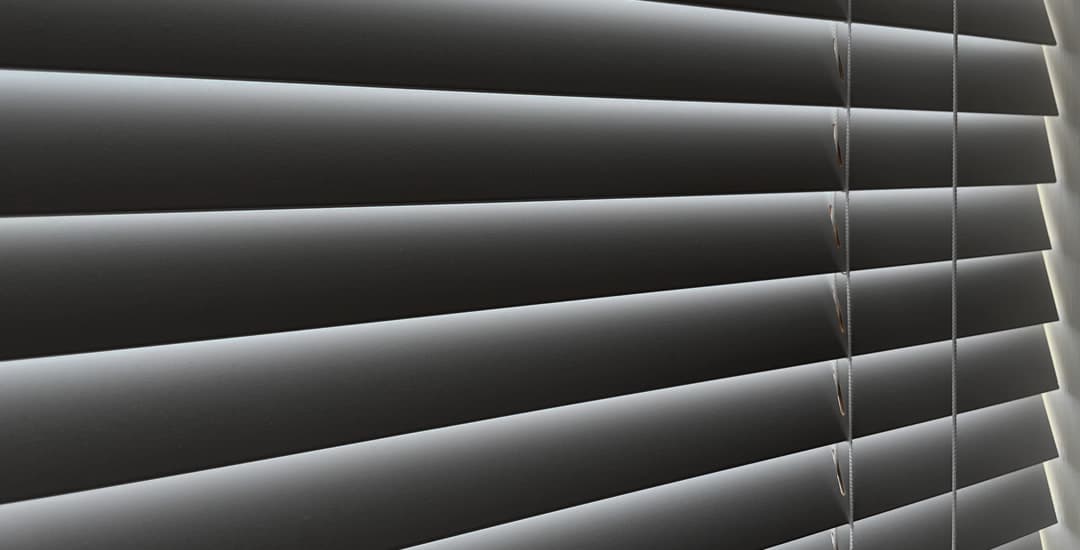
Do Venetian blinds offer a good night’s sleep if you need some indication of the outside light level?
If you find it reassuring to sleep with at least a little light in your room or find it really disorienting to wake up without a clue to what time it is because your bedroom is dark 24/7, do Venetian blinds offer a good night’s sleep? I’m not going for a hard “yes” here, but instead, a “yes for some people.”
Venetian blinds will definitely give you an indication of whether or not it’s light outside (whether that light be the sun or artificial light), and so if it’s the monsters under the bed that only come out when it’s pitch black that concern you, Venetian blinds will definitely protect you effectively.
However. While the actual amount of light that Venetian blinds let through their lift cords isn’t a lot, it can be fairly bright, as it’s not diffused in the same way it would be if it passed through the actual fabric of a dimout blind. As I mentioned above in the section titled “do Venetian blinds offer a good night’s sleep if you need to have total darkness,” some people who don’t want to sleep in full darkness or that want to know when it’s getting light don’t necessarily want that light to come in the form of particularly bright rays either.
Dimout blinds that diffuse and take the edge off of external light while not eradicating it entirely will suit some people’s tastes more effectively than Venetian blinds, but getting the full memo on just how bright it is outside by means of the lift cord holes telegraph is a better choice for others; you just have to decide which camp you fall into.
As long as you pick Venetian blinds for your bedroom with your eyes fully open about how they block and admit light (and are confident that they won’t actually keep your eyes fully open all night long too) they might provide a good night’s sleep for you.
Are Venetian blinds suitable for bedrooms that get particularly cold?
One final point to note if you’re still full steam ahead about bedroom Venetians is that real wood and faux-wood Venetians are also excellent insulators; and they can help to take the edge off the chill in a bedroom that tends to get cold due to heat loss via the windows.
Finding the ambient temperature uncomfortable (whether that’s too hot or too cold) can ruin your sleep just as effectively as not having the right level (or lack thereof) of light, and so this is something that might be a point in favour of Venetian blinds for bedrooms too.

